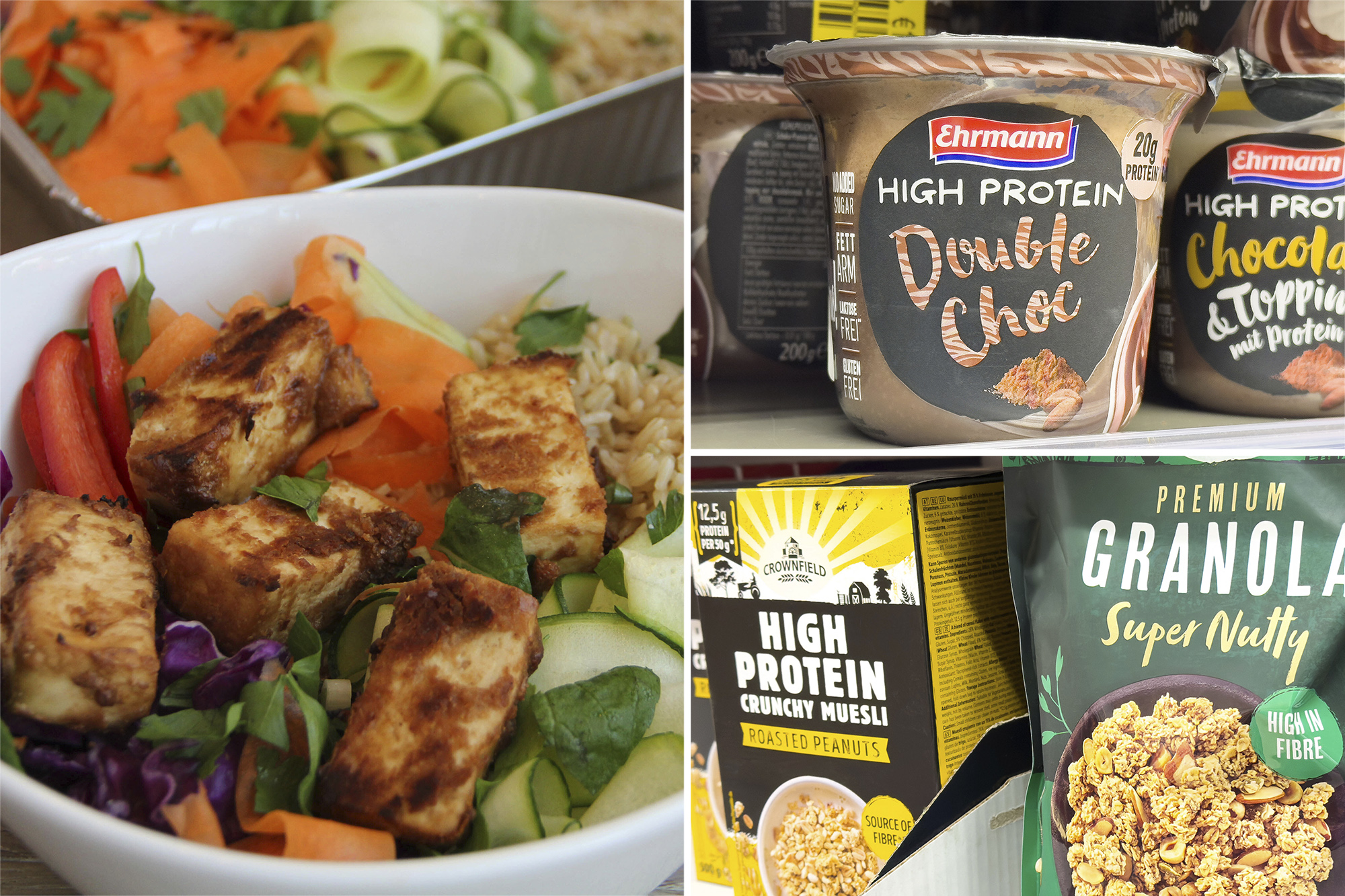The human body needs protein.
Proteins perform countless functions within cells and are vital for the growth, repair and maintenance of muscles, bones and skin.
And with food companies that develop versions of rich proteins in a wide variety of foods, including shakes and bars in Granola, and even pancakes and popcorn, you may be tempted to think that you need to add more to your diet.
But nutritionists say that if you have enough food, you probably get enough protein.
“Adding proteins to food is very beneficial, for the benefits of this food,” said Federica Amati, a nutritional leadership of the Imperial College London and the main nutritionist of the Zoe Health Sciences Company. “He is not based on health, he does not have the support of science.”
The amount of proteins you need depends on your age, weight and personal nutritional needs, and it is especially important that children and adults ensure that they eat protein -rich foods.
It is then shown what to know about the amount of proteins you need and how to ensure -you get it from the best sources.
Protein is so critical that your body knows how to do
Protein is a macronutrient or a basic type of food like fat or carbohydrates that their body needs to work.
There are thousands of proteins, mounted from smaller molecules called amino acids, most of which can be made by the body.
“Because the protein is so important, our body has adapted very well to ensure that it can mount and change the construction blocks of these amino acids to ensure what we need, as long as we eat appropriate amounts of food,” said Amati.
However, the body cannot do all the amino acids, so some must come from food.
If you do not starve in hunger, you will probably get a lot of protein
The World Health Organization recommends that healthy adults have about 0.4 grams of protein per pound of body weight (0.8 grams of protein per kilogram of body weight).
That is, approximately 60 grams for men and 50 grams for women a day, based on 165 pound body weights (75 kilograms) for men and 143 pounds (65 kilograms) for women.
In most rich countries, the average adult gets much more, said Amati.
He said that protein deficiencies are mostly in malnourished people in the subsistence diet in the poorest countries.
Bridget Benolam, a nutritionist of the British Nutrition Foundation, said it was important to obtain proteins from different foods, such as dairy, fish, beans, nuts, vegetables and meat.
He said that studies suggest that vegetarians and vegans have lower protein intake than meat and fish dining rooms, but their average protein levels are still well.
Having some protein at each meal is also a good idea. “It seems to be better to preserve muscle function if you have any protein throughout the day, instead of having everything at a meal,” said Benelam.
Protein can be found in a wide variety of food
Plank -based protein sources include foods such as beans, lentils, peas, nuts, seeds, tofu, tempeh and meat substitutes.
Fish, meat, poultry, eggs and dairy like milk and yogurt are also good sources of protein.
Amati said that animal -based source proteins can be easier for the body to decompose compared to plant -based proteins, which usually have more fiber.
“If you eat a piece of beef, get protein and things like zinc and iron, but also fatter fat,” he said. In comparison, Amati said that eating protein -rich foods such as chickpeas or beans also provides fiber to the body, which is missing in most of our diets.
You probably don’t need to buy products with added proteins
“Unless you have a specific health problem that requires more protein, most people like the United States and the United Kingdom need no more,” said Benelam of the British Nutrition Foundation.
Amati, of the Imperial College London, said that people should examine the list of protein-enriched ingredients to make sure they are not loaded with sugar and fat.
For people trying to build more muscles, he recommended a more direct solution: exercise.
“If you are concerned about the composition of the body and muscle strength, you have to lift weights (more heavy) and give a challenge to the body,” said Amati. “Eating a protein bar will not help.”
The Department of Associated Health and Science Press is supported by the Department of Science Education of the Howard Hughes Medical Institute and the Robert Wood Johnson Foundation.
#protein #added #Nutritionists #dont #food
Image Source : nypost.com
